Meta CEO Mark Zuckerberg discusses Threads, his feud with Elon Musk, the Quest 3 headset, and the future of AI in a special episode of Decoder.
Mark, I have to be honest. Not long ago, I was thinking we may be doing this as like a post-fight interview in Las Vegas, right outside of the Octagon afterMaybe next year. Not Elon, but someone. I want to keep competing, but I just need to find someone who asks me.I don’t know. You’d have to ask him. But I don’t know. I just really enjoy doing it as a sport. For me, it’s a competition, and it’s a sport. I mean, I love doing it.
When I was a lot younger, I used to fence competitively. A lot of the striking aspects — I mean, obviously, it’s different because, I mean, [in] fencing, you’re playing for points, right? So when you get a touch, the sequence is done, whereas here, you have to worry about being countered and all that. It’s very intellectual.
And that’s one of the reasons why, over time, we’ve done different acquisitions and why we’ve considered them.. I think this was, gosh, this was, I think, when Jack was leaving the first time. And look, I get it. I mean, different entrepreneurs have different goals for what they want to do, and some people want to run their companies independently, and that’s cool.
I think Instagram is generally kind of on the happier end of the spectrum. I think Facebook is sort of in the middle because it has happier moments, but then it also has sort of harder news and things like that that I think tend to just be more critical and maybe, you know, make people see some of the negative things that are going on in the world. And I think Twitter indexes very strongly on just being quite negative and critical.
Where with Facebook, we started with this real name culture, and it was grounded to your college email address. You know, it obviously hasn’t been grounded to your college email address for a very long time, but I think the kind of real authentic identity aspect of Facebook has continued and continues to be an important part of it.
First is to create the spark. Second is to create retention. Then, once you have retention, then you can start encouraging more people to join. But if people aren’t going to be retained by it, why would you ask people to go sign up for something? I think it’s a thing that we’ll work on improving, but I mean, hard news content isn’t the only fresh content. Even within news, there’s a whole spectrum between sort of hard, critical news and people understanding what’s going on with the sports that they follow or the celebrities that they follow. It’s not as cutting as a lot of the kind of hard news — and especially the political discussion.
But I mean, it didn’t exist when we got started, right? I’ve had our team at various times do the thought experiment of like, “Alright, what would it take to move all of Facebook onto some kind of decentralized protocol?” And it’s like, “That’s just not going to happen.” There’s so much functionality that is on Facebook that it’s way too complicated, and you can’t even support all the different things, and it would just take so long, and you’d not be innovating during that time.
And I get that not everyone is going to want to use everything that we build. I mean, that’s obviously the case when it’s like, “Okay, we have 3 billion people using Facebook,” but not everyone wants to use one product, and I think making it so that they can use an alternative but can still interact with people on the network will make it so that that product also is more valuable.
I’m pretty optimistic about this. And then if we can build Threads on this, then maybe over time, as the standards get more built out, it’s possible that we can spread that to more of the stuff that we’re doing. We’re certainly working on interop with messaging, and I think that’s been an important thing. The first step was kind of getting interop to work between our different messaging systems.
Well, I didn’t really know what to expect going into that conversation, but it was quite substantive, and I think we covered a lot more ground than I expected. You asked about what it says about where the government is, and aside from Sen. Schumer, who basically moderated the discussion, it was really an opportunity for them to hear from the people in the tech industry but also folks in civil society.
So that was fascinating to see. I mean, I didn’t come away — you know, apart from seeing their heads nod when certain people made certain points — it wasn’t a time for us to really get their sense of where they are. I think it was more just they were hearing the discussion of the issues. I think that that makes sense. There are a bunch of concerns there that I think are real. You know, one of the topics that I’ve spent a lot of time thinking about is open source. Because, you know, we do a lot of open-source work at Meta. Obviously, not everything we do is open source. There’s a lot of closed systems, too. I’m not like a zealot on this, right? But I think I lean probably a little more pro-open source than most of the other big companies.
So I think that that’s generally positive, but there’s obviously this whole debate where when you open-source stuff, we can build in safeguards, but if you open-source something, you’re not fundamentally going to be able to prevent bad guys from taking that and running with it, too.
You know, the biggest arguments in favor of keeping it closed were generally not proprietary advantage.No, it wasn’t competitive advantage. There was a fairly intense debate around this.My bias was that I thought it should be open, but I thought that there were novel arguments on the risks, and I wanted to make sure we heard them all out, and we did a very rigorous process.
Yeah. So, at Connect, we announced a bunch of different things on this. Meta AI and the other AIs that we released are based on Llama 2. It’s not exactly the same thing that we open-sourced because we used that as the foundation, and then we built on top of that to build the consumer products. But there were a few different things that we announced.
It’s overwhelming. I find this with the current chatbots. I feel like it can do so much that I’m not actually sure what to ask it. If you’re a creator, you really want to make sure that these AIs reflect the personality of the creator and don’t talk about things that the creator doesn’t want to get into or don’t say things that are going to be problematic for the creator and their endorsement deals.
So, yeah, I think that’ll be pretty powerful. But then there are also going to be all these other new characters that are getting created, which is somewhat of an easier question to start with than having AIs that are kind of acting as a real person because there aren’t as many kinds of brand safety concerns around that, but they could still be pretty fun.
For people who haven’t used it yet, you just type into the bot what you want the image to be, and it’ll just make it. So I think, to some degree, the thing that these language models have really been best at is — I mean, it’s kind of what the name “generative AI” suggests — being generative, right? Suggesting ideas. Coming up with things that could be interesting or funny. I wouldn’t necessarily yet want it to be my doctor and ask it for a diagnosis and have to rely that it’s not hallucinating.
I actually think a lot of the stuff that we’ve done today is actually still pretty basic. So I think there’s a lot of upside, and I think we need to experiment with it to see what ends up being useful. And I think that people will probably want the AIs that they interact with, I think it’ll be more exciting and interesting if they do, too. So part of what I’m interested in is this isn’t just chat, right? Chat will be where most of the interaction happens.
Do you think the advent of these AI personas that are way more intelligent will accelerate interest in the metaverse and in VR? But it was only over the course of developing the product that we realized that, “Hey, we could actually put this whole generative AI assistant into it, and you could have these glasses that are kind of stylish Ray-Ban glasses, and you could be talking to AI all throughout the day about different questions you have.”
So if you want to build an AI assistant that really has access to all of the inputs that you have as a person, glasses are probably the way that you want to build that. It’s this whole new angle on smart glasses that I thought might materialize over a five- to 10-year period but, in this odd twist of the tech industry, I think actually is going to show up maybe before even super high-quality holograms do.
It seems like you all, based on my demos, still primarily think of it as a gaming device. Is that fair? That the main use cases for Quest 3 are going to be these kinds of “gaming meets social.” So you’ve gotI think social is actually the first thing, which is interesting because Quest used to be primarily gaming.
Yeah, you have to imagine that over the next five-plus years, there will be displays that are that good, and they’ll come down in cost, and we’re riding that curve. I think it makes sense for them. I think that they sell… it must be 15 to 20 million MacBooks a year. And from their perspective, if they can replace those MacBooks over time with things like Vision Pro, then that’s a pretty good business for them, right? It’ll be many billions of dollars of revenue, and I think they’re pretty happy selling 20 million or 15 million MacBooks a year.
I’d like to have this be a more open ecosystem over time. My theory on how these computing platforms evolve is there will be a closed integrated stack and a more open stack, and there have been in every generation of computing so far. On the progress that you’re making with AR glasses, it’s my understanding that you’re going to have your first internal dev kit next year. I don’t know if you’re gonna show it off publicly or not, if that’s been decided, but is that progressing at the rate that you have hoped as well? It seems like Apple’s dealt with this, that everyone’s been dealing with kind of the technical problems with this.You said AR glasses are a kind of end-of-this-decade thing. And I guess what I’m trying to get at….
The cycle for iterating on this — if you’re doing a Threads release or Instagram, the cycle is like a month. For hardware, it’s like 18 months, right? Or two years. But I think this is the next step, and we’re going to climb up that curve.
United States Latest News, United States Headlines
Similar News:You can also read news stories similar to this one that we have collected from other news sources.
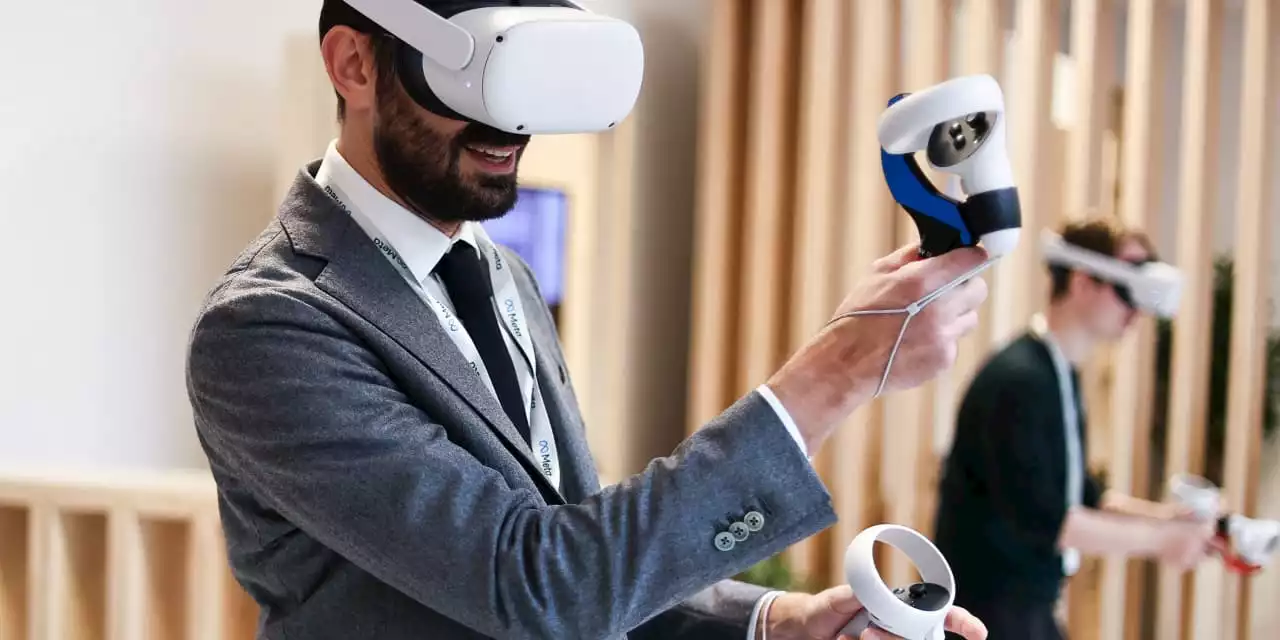 Meta Unveils Quest 3 as Mark Zuckerberg Doubles Down on Mixed RealityMeta Platforms announced a new mixed-reality headset at its Meta Connect event. The company is also expected to unveil a variety of new AI experiences.
Meta Unveils Quest 3 as Mark Zuckerberg Doubles Down on Mixed RealityMeta Platforms announced a new mixed-reality headset at its Meta Connect event. The company is also expected to unveil a variety of new AI experiences.
Read more »
 Meta Quest 3 vs. Quest 2: worth the upgrade?Meta's Quest 3 has arrived with improved performance and mixed reality, but the Quest 2 costs less and has the same games, so which is right for you?
Meta Quest 3 vs. Quest 2: worth the upgrade?Meta's Quest 3 has arrived with improved performance and mixed reality, but the Quest 2 costs less and has the same games, so which is right for you?
Read more »
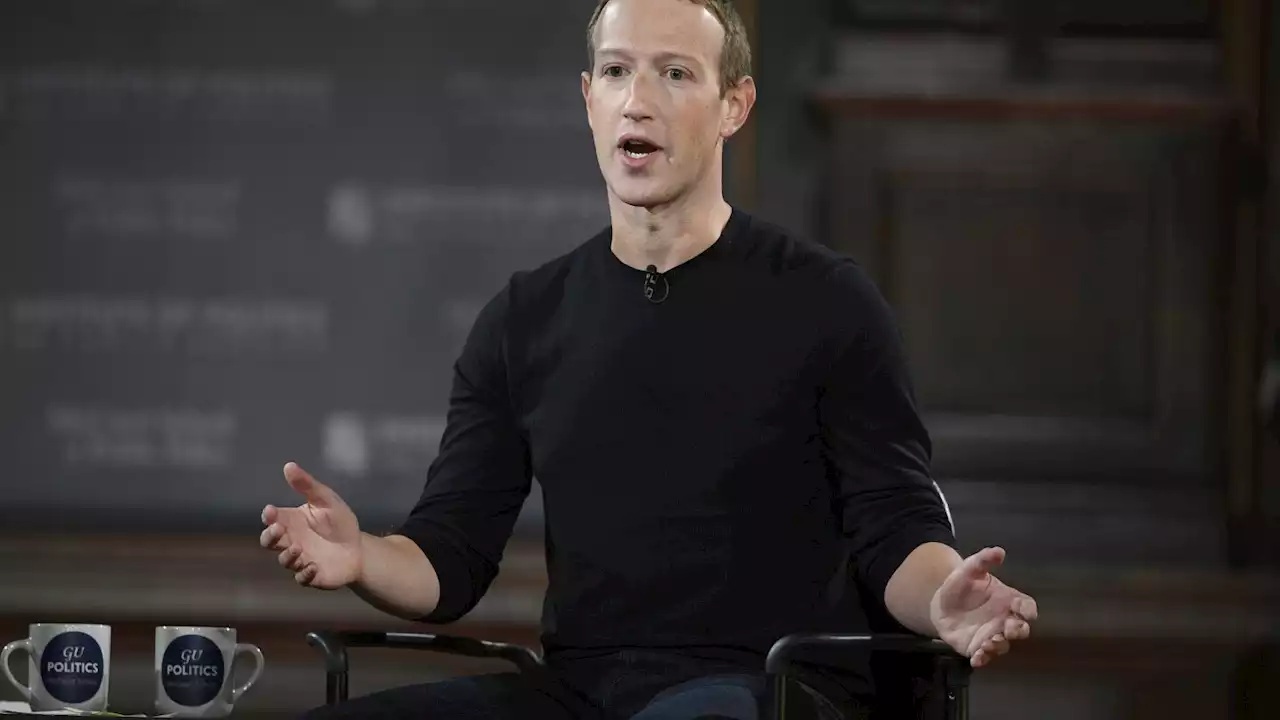 Meta CEO Mark Zuckerberg to kick off developer conference with focus on AI, virtual realityMeta CEO Mark Zuckerberg will kick off the tech giant's Connect developer conference with a focus on virtual and augmented reality and artificial intelligence.
Meta CEO Mark Zuckerberg to kick off developer conference with focus on AI, virtual realityMeta CEO Mark Zuckerberg will kick off the tech giant's Connect developer conference with a focus on virtual and augmented reality and artificial intelligence.
Read more »
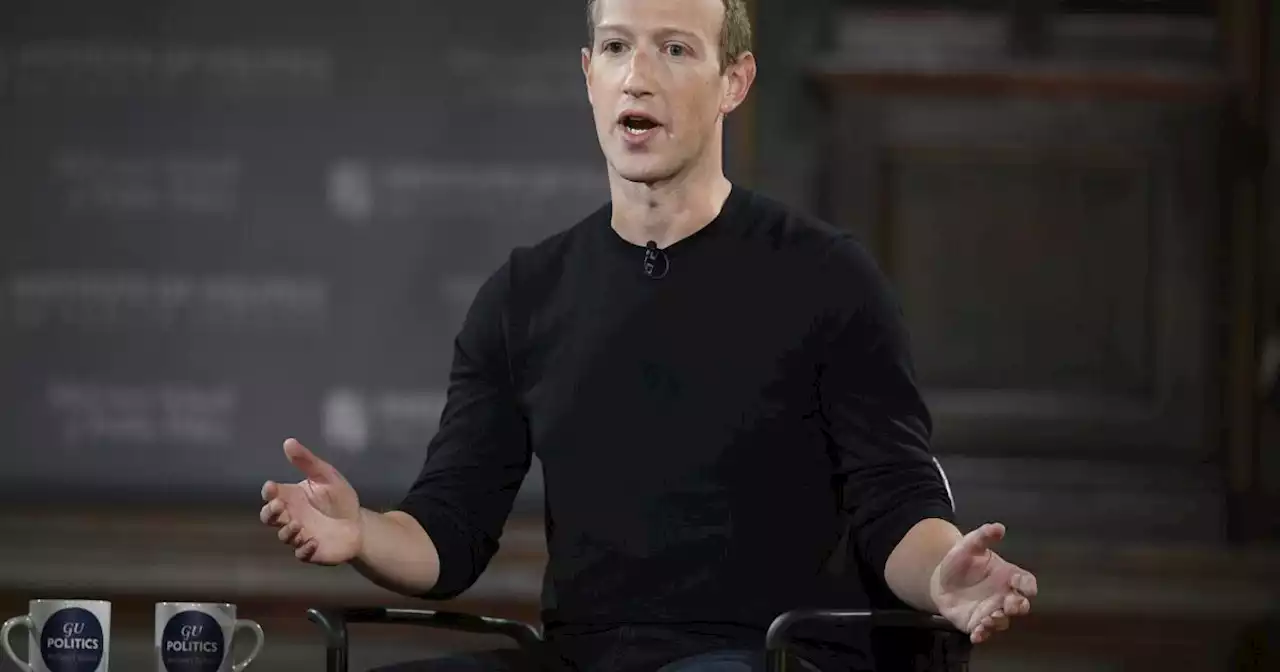 Meta CEO Mark Zuckerberg to kick off developer conference with focus on AI, virtual realityMeta CEO Mark Zuckerberg will kick off the tech giant's Connect developer conference with a focus on virtual and augmented reality and artificial intelligence
Meta CEO Mark Zuckerberg to kick off developer conference with focus on AI, virtual realityMeta CEO Mark Zuckerberg will kick off the tech giant's Connect developer conference with a focus on virtual and augmented reality and artificial intelligence
Read more »
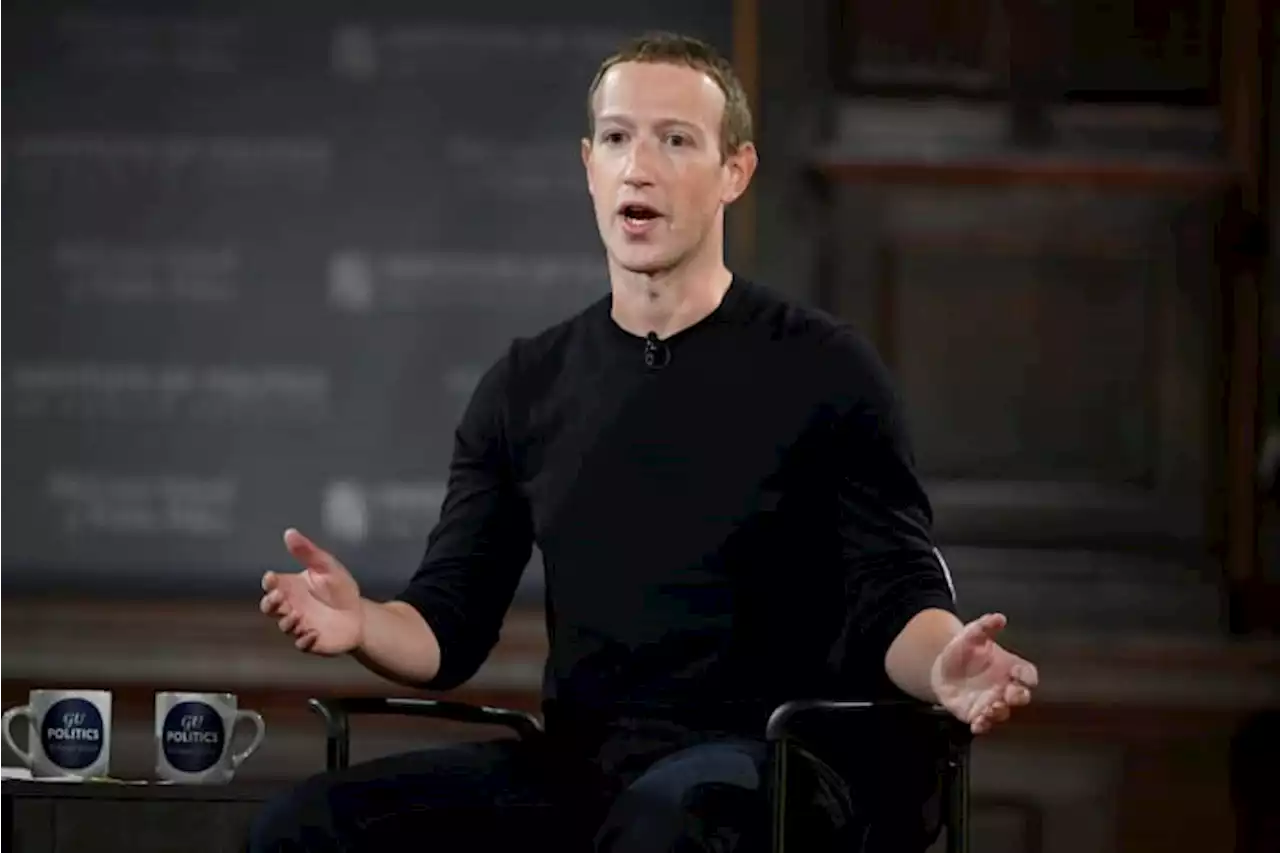 Meta CEO Mark Zuckerberg to kick off developer conference with focus on AI, virtual realityMeta CEO Mark Zuckerberg will kick off the tech giant's Connect developer conference with a focus on virtual and augmented reality and artificial intelligence.
Meta CEO Mark Zuckerberg to kick off developer conference with focus on AI, virtual realityMeta CEO Mark Zuckerberg will kick off the tech giant's Connect developer conference with a focus on virtual and augmented reality and artificial intelligence.
Read more »
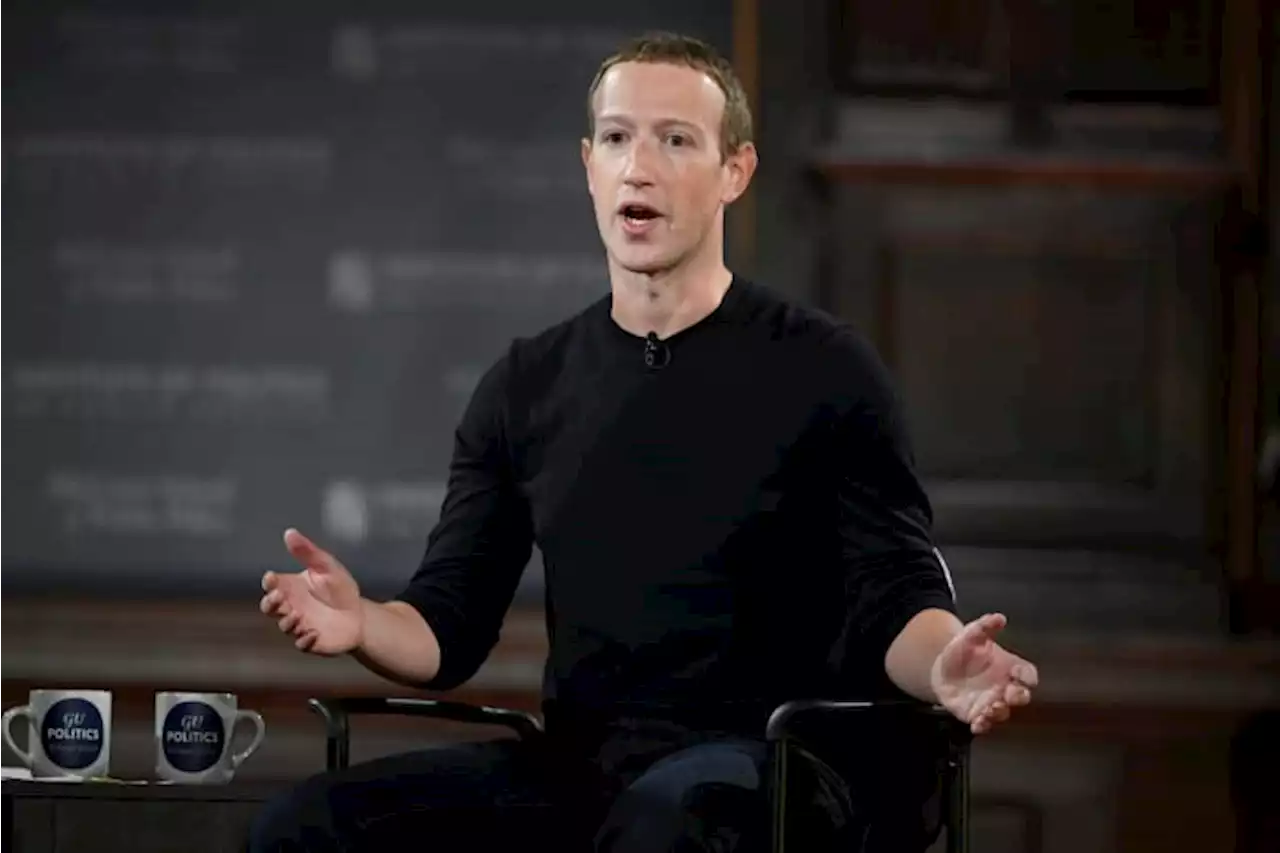 Meta CEO Mark Zuckerberg to kick off developer conference with focus on AI, virtual realityMeta CEO Mark Zuckerberg will kick off the tech giant's Connect developer conference with a focus on virtual and augmented reality and artificial intelligence.
Meta CEO Mark Zuckerberg to kick off developer conference with focus on AI, virtual realityMeta CEO Mark Zuckerberg will kick off the tech giant's Connect developer conference with a focus on virtual and augmented reality and artificial intelligence.
Read more »
